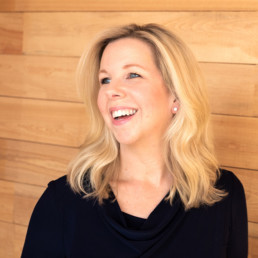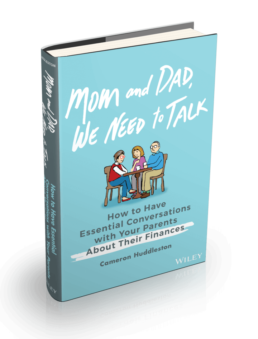Nothing. Nada. Zip. That’s how much 14% Americans have saved for retirement, according to a survey by GOBankingRates. And another 29% have less than $10,000 set aside for their future.
As a columnist for GOBankingRates, I’ve been interviewed by several media outlets about the survey findings. The question I’m always asked is why so many people have so little saved for retirement.
Some people who truly are struggling financially just can’t afford to set anything aside. However, many people haven’t started saving for retirement or aren’t saving enough because of lifestyle choices they make. It’s natural to want to live in the moment, but, unfortunately, it comes at the expense of your future.
If you’re among those who haven’t started saving, well, bless your heart. In the South where I’m from, I hear that expression all the time. To an outsider, it might sound like an expression of sympathy – and it is somewhat. But what it really means is that it sucks for you.
Yes, if you have nothing or little saved by the time you want to retire, it will suck. No sense sugar coating it.
You Probably Won’t Be Able to Retire
Numerous financial experts I’ve interviewed over the years have said that people who haven’t saved for retirement likely will have to continue working. If you have some savings but not enough to replace most of your income in retirement, you’ll likely have to delay retirement. In fact, a recent study by Fidelity Investments found that the most powerful step Baby Boomers ages 51 to 69 can take to have enough to cover retirement expenses is to consider working longer.
According to Fidelity, most people will need to replace about 80% of their pre-retirement income to cover expenses in retirement and maintain a comfortable standard of living. So if you earn, say $50,000 a year, you’ll need about $40,000 a year in retirement. Where’s that money going to come from if you don’t have savings?
Even if you have money set aside, do you have enough? The rule of thumb is that you can safely withdraw 4% annually of the initial balance of a retirement portfolio with an even mix of stocks and bonds to stretch those funds for 30 years. So if you have $100,000 saved, that means you can withdraw just $4,000 annually. Good luck living on $4,000.
You’ll Have to Rely Solely on Social Security – Which Isn’t Much
If you’re counting on Social Security benefits to fund your retirement, you won’t be alone. Social Security is the primary source of income for more than half of married couples and nearly three-quarters of single people aged 65 and older, according to the Social Security Administration.
The average monthly benefit is not that big, though. It’s currently $1,420, which is just $17,040 a year. You could get more or less depending on how much you earn and the state of the Social Security trust fund when you want to retire.
You Might Have to Live With Your Kids
You might assume that because you’ve made sacrifices for your kids that they should make sacrifices for you. But do you really want them to take you in because you can’t afford your home in retirement? I doubt it. And you certainly don’t want to put your kids’ financial well-being in jeopardy to support you.
How to Start Saving
If you don’t want to work forever or live an incredibly frugal life in retirement, you need to take steps now to build a nest egg. Here’s how:
Participate in your workplace retirement plan. The easiest way to save is to take advantage of a workplace retirement plan, if your employer offers this benefit. It will likely be a 401(k), 403(b) or 457 plan. You can designate a certain amount to be withdrawn from each paycheck – and the money comes out before taxes, which means your taxable income is lower and you’ll fork over less to Uncle Sam.
If your employer matches your contribution, make sure you contribute enough to get the full match. Not all employers offer this benefit, but those that do typically contribute 50 cents for every $1 contributed by an employee to his 401(k) up to 6 percent, according to the 401kHelpCenter.com. If you don’t contribute enough to get the full match, though, you’re leaving free money on the table. For example, if you earn $40,000 a year and contribute just 3 percent of your salary, but your employer offers a 50-cent match up to 6 percent, you’re missing out on $600 a year in free money.
Open an individual retirement account. If you’re self-employed, you can open a SEP IRA or solo 401(k) through an investment firm such as Charles Schwab, Fidelity or Vanguard. You can contribute 25% of income, up to a maximum of $56,000 to a SEP. You can contribute up to $19,000 to a solo 401(k) plus 25% of income, up to a maximum of $56,000. And contributions to both accounts are tax deductible.
Aim to save 15 percent of your annual income. That might seem like a lot – especially if you don’t earn much. That’s how much financial planners recommend setting aside, though, from your 20s until your 60s if you want to have enough for a comfortable retirement.
If you start setting aside that much from a young age, it’s not as hard as it might seem. You simply learn to live on 85% of your income, rather than 100%. Even if you can’t save that much, save something and increase the amount you save with each pay raise you get. Increasing your contribution just 1% a year can actually have a big impact.
A 25-year-old who earns $40,000 a year and contributes just 1% more of his salary each year (or $33 more each month) until age 67 would have $3,870 additional yearly income in retirement, assuming a 7% rate of return and a 1.5% annual pay raise, according to Fidelity.
For more help getting your savings on track, use these 20 strategies to retire rich.
Don't Miss Out! ORDER NOW!
"An excellent step-by-step guide to navigate what can be time-consuming, uncomfortable conversations."
- Michelle Singletary, The Washington Post
Related Posts
May 7, 2025
How to Talk to Your Parents About Their Stuff You Don’t Want
These tactics might get your parents to…
January 29, 2025
Telling Our Kids Everything About Our Finances
We shared the essential details of our…

Cameron Huddleston
I am the author of Mom and Dad, We Need to Talk: How to Have Essential Conversations With Your Parents About Their Finances. I also am an award-winning journalist with 20 years of experience writing about personal finance. My work has appeared in Kiplinger’s Personal Finance, Forbes.com, Yahoo!, MSN, and other online and print publications.




